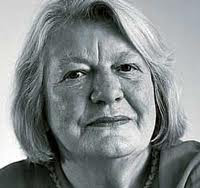Yesterday, the High Court in London handed down a judgement which will strike terror into the hearts of book reviewers everywhere.
A judge ordered the
Telegraph newspaper to pay £65,000 (US$100,000), in addition to court costs, to an author who claimed journalist Lynn Barber had libelled her in a review.
The author in question is Dr Sarah Thornton, whose book
Seven Days in the Art World received a less-than-complimentary review from the famously acerbic Ms Barber.
Dr Thornton’s claim is based on the fact that Ms Barber, who is interviewed in the book, stated that no such interview took place. However, Dr Thornton was able to prove that the interview DID occur, and believes that Ms Barber’s denials have undermined her credibility as an author and journalist. (Dr Thornton regularly writes on the subject of contemporary art for
The Economist).
The judge agreed that Dr Thornton has suffered as a result of this review, stating that the review contained serious factual errors and was ‘spiteful’. He awarded damages of £50,000 for libel and £15,000 for malicious falsehood.
However, this is not the first time Barber (whose memoirs were dramatized in the Oscar-nominated film,
An Education) has courted controversy – in fact, she seems to revel in it. During her long journalistic career, her rather direct and often merciless style of interviewing earned her the sobriquet ‘The Demon Barber of Fleet Street.’ And if that wasn’t enough to ensure her notoriety, her famously outspoken personality certainly is. Last year, she shocked Radio 4’s rather sedate audience by claiming, on the programme
Desert Island Discs, to have slept with fifty men during her first two terms at Oxford. She also ruffled feathers when she publically denounced the intelligence of her mother, who was by this time quite elderly, by declaring that she had a ‘beta brain’.
 |
| Dr Sarah Thorton |
So, will this latest controversy succeed, where others have failed, in finally chastening the barbed Barber?
One thinks most likely not.
The Telegraph has said they will appeal the decision at the earliest possible opportunity.














